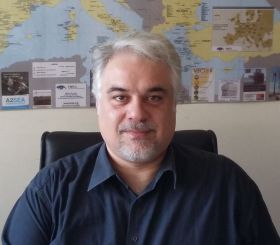Course Overview
The MOOC aims to give an overview and the knowledge for the interconnection of the production and consumption of energy with the environment under the context of the energy transition. In particular, using a case based approach, and tools’ analysis, the course will start with the basic and core presentation of the impact of the energy generation and consumption to the environment on terms of resources consumption, gasses emission, impact on land and water. After examples of energy and environmental performance indicators calculations and presentation of different approaches and case studies, the implementation of energy efficiency and RES in the environment is evaluated. Typical approaches involving consumer behavior and products selection is included. Basic aspects related to evaluate the environmental impact of products, their end-of-life and basic principles of eco-design are also presented.
Learning Objectives
Energy generation and environment, greenhouse gasses emissions and climate change.
Energy efficiency and energy saving: Introduction to energy efficiency in products and systems.
Energy and environmental policies and their interdependence.
The European Directives Energy Efficiency, Eco-label, Energy-label, Eco-design, RoHs, EMAS, and their application to equipment and various industrial devices
The life cycle analysis in the production and operation of the equipment
End-of-life of waste electrical, electronic and industrial equipment. Legislation
Designing systems in accordance with the instructions for EcoDesign.
Outcomes
- Relate the energy generation and consumption with the environment.
- Recognize the impact to the local and global climate that the energy generation and consumption have.
- Classify what is Renewable and non-renewable source of energy.
- Describe the energy efficiency, ecolabel EU legislation
- Select energy efficiency and energy savings actions in everyday life and especially in energy consumption, at appliance level, house level, enterprise level, country level.
- Identify and select equipment and devices based on energy efficiency criterion. Ability to perform the studies and work and to assess their results considering this parameter.
- Ability to use the principles of ecological design (Eco-Design) and environmental legislation regulations that define the design, operation and the end of life cycle of electrical equipment and installations, in his/hers professional activity.
- Describe the legislation on the end of life treatment and recycling potential of waste electrotechnical equipment, as a key activity related to energy consumption and environment
- Recognize the relationship of the profession of Electrical Engineering and the environment and their interdependence.
- Ability to apply that knowledge in his/hers business life
Do you want to know more about the ASSET project and get engaged to it? Sign in the newsletter and community on energytransition.academy. Be part of us
Certification and Additional Info
Dear participants,
Please note that the platform delivers automatically the certificate of participation when the students reaches the 80% of the course, otherwise it is a completion certificate.
On it there is the logo and name of the project, the title of the course and the names of teachers.
Please take into consideration that the certificate will be delivered to all of you form everywhere in the world.
Sincerely,
Prof. Dr. Constantinos S. Psomopoulos
Use of content and licenses
CC-BY-SA-ND
Course Structure
- Lesson 1 - Introduction in energy and environment
- Lesson 2 - Energy, Environment and Climate Change
- Lesson 3 - Energy efficiency and energy saving: Introduction to energy efficiency in products and systems
- Lesson 4 - Energy and Environmental Policies and their interconnection
- Lesson 5 - European Directives Energy Efficiency, EPBD, Eco-label, Energy-label, RoHS, EMAS
- Lesson 6 - End-of-life of waste electrical, electronic and industrial equipment
- Lesson 7 - Waste as resources.
- Lesson 8 - The life cycle analysis in the production and operation of the equipment
- Lesson 9 - Designing systems in accordance with the instructions for EcoDesign.
- Lesson 10 - Case studies
Teacher
Costantinos Psomopoulos
Professor Constantinos S. Psomopoulos, is the
Director of the High Voltage and Energy Systems Research Lab of the School of
Engineering of the University of West Attica. He has worked for several years
in different industrial sectors (Shipyards industry, Waste Management
facilities, Energy facilities, etc), and he is now also an independent
consultant. His research interests includes energy efficiency and RES,
sustainable waste/resources management, EcoDesign of products and systems, and
critical energy infrastructure operation and protection. He has participated in
many National, International and EU founded projects in these fields. He was
the technical manager of the “Study for preparing the first Working Plan of the
EcoDesign Directive, ENTR/06/026”, Service Contract for EU/DG ENTR”. Since 2017
he cooperates as an expert with the ClimateKIC –Malta, he is member of the
Stakeholders Consultation Forum (Expert) for the revision of the Ecodesign
Regulation EU 548/2014 on Power Transformers, TWG Member for the Development of
the EU Green Public Procurement (GPP) Criteria for Data Centres by EU JRC, and
evaluator of EURAMET in the fields of Energy, Industry and Prenormative. He was
Professor in PUAS from 2007 until March 2018, when he joint the Electrical and
Electronics Engineering Department of University of West Attica. He is Research
Associate in Earth Engineering Center of Columbia University NY since 2011, and
he is Visiting Professor in University d’ Auvergne since June 2016.




